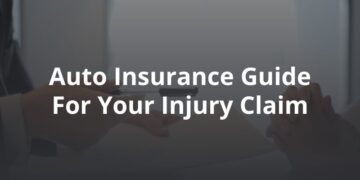Regardless of what you do for work, you’re likely to encounter occupational risks. These can range from the mundane to the critical, and it’s the responsibility of your employer to both protect you and help you recover should things go wrong.
For example, if you work in a restaurant, you risk cutting yourself, burning yourself, or slipping and falling on wet kitchen floors. Even if you work in a low-risk environment, like an office, you can experience injuries like carpal tunnel syndrome. For those who work in industries where there is constant exposure to toxic chemicals, long-term illnesses could arise. When employees experience these types of workplace injuries or occupational illnesses as a direct result of their job’s duties, typically they go through a workers’ compensation system to get reimbursed for damages.
Workers’ compensation is a system of insurance designed to protect employees and employers from the potentially devastating financial effects of on-the-job injuries or illnesses. This form of insurance reimburses employees for medical treatment, ongoing care, lost wages, and other material costs associated with their specific incident.
But what should you do if you are injured on the job and your employer doesn’t have workers’ compensation coverage? Are employees then left with no recourse? Are there legal protections in place for employees? Here we’ll answer those questions and give you insight into how a team of workplace accident compensation lawyers could help guide and assist you.
Are employers legally required to provide workers’ comp insurance?
Although laws vary by state, generally speaking, businesses with at least one employee are legally obligated to provide workers’ compensation insurance. That said, there are exemptions to these laws, and the number of employees required varies from state to state.
Employers are to provide coverage by purchasing a policy through a private insurer or their state’s assigned risk pool or by self-insuring. Self-insurance is rare, as it often requires approval from the state and means that the employer must have enough financial security to pay for all workers’ comp claims out of pocket. Generally, you’ll find that most businesses have insurance through a private insurance company, broker, or other provider licensed to operate in their state.
But what happens if your employer is shirking their legal requirements and you’re injured on the job? If you’re located in a state that legally requires it and your employer is found to be non-compliant with state laws, then you are within your legal right to sue your employer in personal injury claims court for the damages associated with your incident. Many employees who pursue litigation find that the knowledge and experience of workplace accident compensation lawyers can be beneficial in this process.
How do workers’ comp personal injury lawsuits work?
As with any legal proceedings, there are advantages and disadvantages to filing suit regarding a workers’ comp claim.
One main benefit is that victims can seek the full amount of their losses as opposed to being limited by the maximum amount for workers’ comp damages as set by state law. For example, in cases that involve temporary disability, states will typically only allow damages amounting to two-thirds of the injured worker’s average wage loss. In a personal injury suit, though, the victim can seek to recover the total amount of their lost wages. Another benefit of pursuing damages in a lawsuit is that victims can seek damages for emotional distress, pain, and suffering. Punitive damages, or damages that are meant to punish the employer for wrongdoing and set a precedent for others, are also a consideration in a personal injury suit.
There are disadvantages, though, of suing your employer worth considering. First of all, the process of suing someone can be tedious and slow. It could take anywhere from a few weeks to a few years for victims to see any compensation from a workplace injury lawsuit. In addition, suing your employer means you will have to prove that their negligence was to blame for your workplace injury or illness. This is different from pursuing a workers’ compensation insurance claim, which is a no-fault system.
Having outlined these pros and cons, you can see why it’s best to assess all of your options thoroughly before making a final decision. Other avenues you can take as an injured employee include seeking compensation through your state’s uninsured employer fund or temporary disability insurance program if those options exist in your state. Workplace accident compensation lawyers can be helpful in informing victims about all of their options and can advise on the best course of action for your specific circumstances.
How can FVF help?
If you’ve been injured at work and your employer doesn’t have workers’ compensation insurance, consider speaking with a team of workplace accident compensation lawyers. At FVF, we are dedicated to helping you understand the options available to you, whether that is through a personal injury lawsuit or not. Our depth of knowledge and years of experience gives us a unique perspective on workers’ comp cases like yours.
We offer free, no-pressure consultations to discuss your options and equip you with the information you’ll need to make the best decision for your situation.
Contact us today to see how FVF can assist in your workplace injury case.





